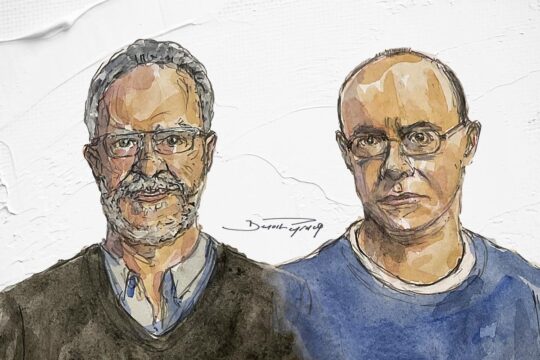Following a plebiscite that rejected by a hair the peace accord between the Colombian government and the FARC-EP that was just signed in Cartagena on September 26, there is much soul-searching, self-critique, and reflection among those of us who worked so hard in the last four years for a political solution that would put an end to so many years of war in Colombia. More on this later. For now, I have found some solace in the reminder from Mercedes Sosa that change is a constant.
“Todo Cambia”
I am working on a longer piece that looks at the roller coaster many of us have been on in recent weeks. In the meantime though I wanted to share with my readers some of my initial reactions to unfolding events from a press advisory issued by the U.S. Institute of Peace early Monday morning. I include links below to my analysis from the media and online.
Was peace defeated in Colombia’s plebiscite?
“The results reflect a country united in seeking peace, but deeply divided over how to do so. Both sides are accepting the results as legitimate and discussing ways to move the country toward peace. The plebiscite results appear unlikely, in the short term at least, to reverse the march toward a political solution.”
“The Colombian people voted –by a narrow margin of less than 60,000 votes out of 13 million votes cast-to reject the Havana peace accords. There is much speculation and soul-searching about how and why so many voted “no” and why the polls, which had predicted a “yes” win of some two-thirds of the voters–got it so wrong.”
Is former President Alvaro Uribe to blame?
“It’s a shame that ex-President Alvaro Uribe did not accept either President Santos’s or Timochenko’s invitations to dialogue before the plebiscite. It might have saved everyone a lot of anguish.”
Did social media play a role?
“Disinformation, particularly within the social media networks, was pervasive, and misrepresentations of what the accords did or didn’t say were virtually impossible to correct.”
Why did supporters of the plebiscite lose?
“The “yes” vote had a much harder sell. The accord was 297 pages and few had read it (they had only one month). The agreement on justice was particularly complex; there was confusion about amnesties and pardons and concern that the FARC would not be adequately punished for their crimes.”
Will the ceasefire be maintained and what is FARC’s reaction after the defeat?
“The government and the FARC-EP are handling the results with cool heads and the parties have reiterated their commitment to peace. President Santos has announced that the bilateral ceasefire will be maintained, and that he will convene political and social sectors from both campaigns tomorrow to discuss ways forward. FARC commander in chief Rodrigo Londoño has indicated that “no” win, words will be their only weapons. The negotiators will be back at the peace tables in Havana tomorrow to establish a process for moving forward.”
Was peace defeated?
“The results reflect a country united in seeking peace, but deeply divided over how to do so. Both sides are accepting the results as legitimate and discussing ways to move the country toward peace. The plebiscite results appear unlikely, in the short term at least, to reverse the march toward a political solution.”
“The Colombian people voted –by a narrow margin of less than 60,000 votes out of 13 million votes cast-to reject the Havana peace accords. There is much speculation and soul-searching about how and why so many voted “no” and why the polls, which had advertised a healthy 66-72% win by the “yes” vote–got it so wrong.”





